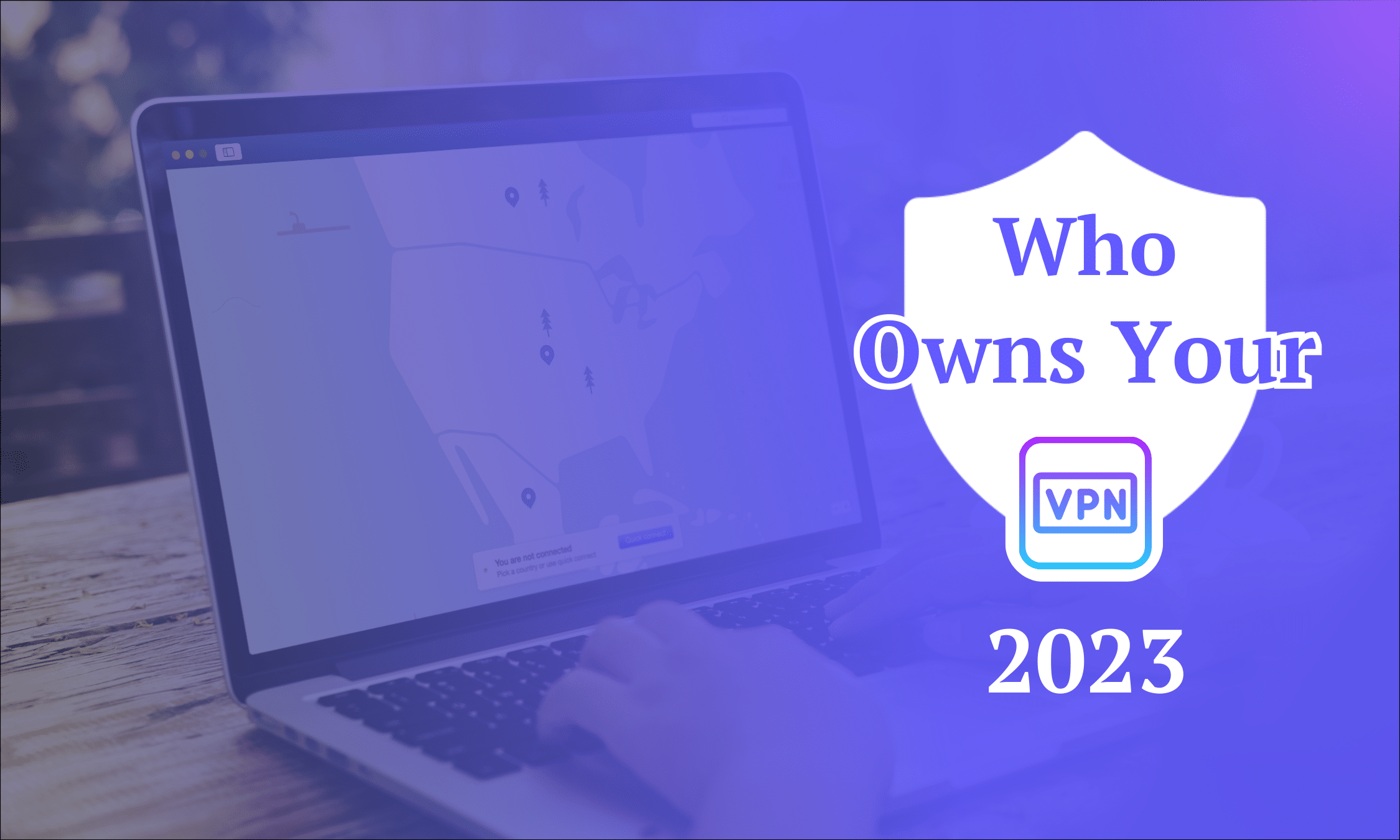
Who Owns Your VPN in 2025? Discover the Top VPN Companies
Quick Answer: Who Owns Your VPN Provider?
Who owns your VPN? That’s an ever-more crucial question in an age of increasingly consolidated VPN providers. I’ll show you how to sleuth out your VPN’s parent company and when you should be concerned.
In this article, I’ll shed light on who owns VPNs, how you can find out who owns your VPN and why it’s vitally important to know your parent companies.
Every virtual private network (VPN) on the market advertises itself as a way to reclaim not just your privacy, but also your independence. Finally, they say, you can use the internet for your own needs without inadvertently handing over your internet activity to advertisers, hackers and other creeps.
The irony is that many of the best VPNs aren’t independent. When judging how well any VPN service can protect you, it pays to look at its parent company. Providers may be bound by strict privacy policies, but if their owners don’t follow the same rules, the VPN may be abusing a loophole.
That’s to say nothing of VPN parent companies that also own VPN review sites or the fears that certain VPN providers may be owned by hostile governments. Like all business, it’s a complicated web of devices and desires, but I’ll do my best to untangle it for you.
Why Should You Find Out Who Owns Your VPN
Who owns your VPN might seem like a trivial question, but when you’re entrusting your privacy and security to an app, it’s dangerous not to know as much as you can.
Privacy
Some VPN services use their parent companies as proxies to do things they’re unwilling to do themselves. A privacy policy might say the VPN will only share data with its parent company, but the parent company’s policy may allow it to share that data more widely. If pressed, the VPN can claim it followed its policy to the letter.
Unscrupulous companies are bad enough, but some VPN providers may store user data or leak it directly to governments — usually the ones that raise online censorship and repression to an art form. Dozens of mobile-only VPN apps can be traced back to China, and in a one-party state, very little separates businesses from the government.
Competition
The more different businesses populate an industry, the more incentive they’ll have to sell good products at competitive prices. Because businesses want to make money, they also have an incentive to consolidate as much as possible; the more they merge, the more power they gain.
We’ve seen this play out in countless industries, including among VPN apps. Some companies go beyond consolidating VPN services to also buy VPN review sites, making it harder to get a straight answer on a provider’s quality. (PrivacyJournal’s parent company, Trustona, is a media company only. It makes all its money through affiliate programs.)
How to Find Out Which Company Owns Your VPN
If you want to hold your VPN’s parent company accountable, you’re in luck. Although providers try as hard as they can to conceal who owns them, they’re not allowed to hide it outright. A little sleuthing can almost always turn up the name.
Google Search
The simplest step is to Google “[VPN name] parent company” and see what comes up. I tested this method on a few top VPNs, and it was right about ExpressVPN (Kape Technologies), IPVanish (Ziff Davis) and Surfshark (NordSec Ltd).
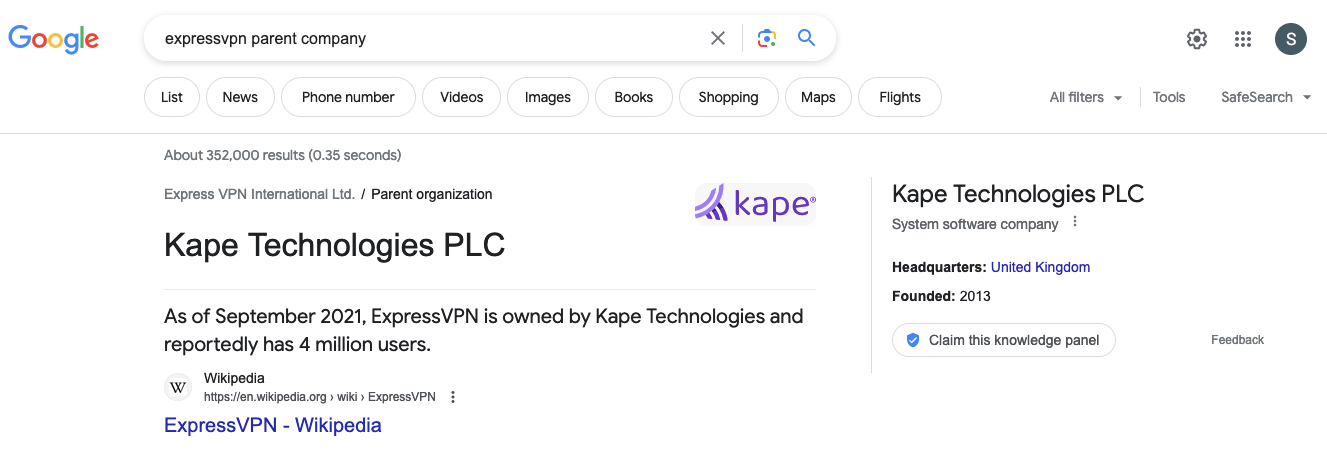
However, as I always advise, don’t trust the first page of search results without verifying. For example, StrongVPN is owned by Ziff Davis, the same company that owns IPVanish, but Google still lists it as owned by J2 Global, Ziff Davis’ former name. It’s technically correct but misleading.
Check the Privacy Policy
A VPN may not be eager to shout its parent company to the world, but it can’t cloud the truth in its privacy policy, which is a binding legal document. VPN providers are required to clearly identify any parent companies, so the name should come up sooner or later.
Luckily, most privacy policies are relatively easy to scan. You can parse them just by using ctrl+F to look for phrases like “parent company,” “holding company,” “owner” and “third-party.”
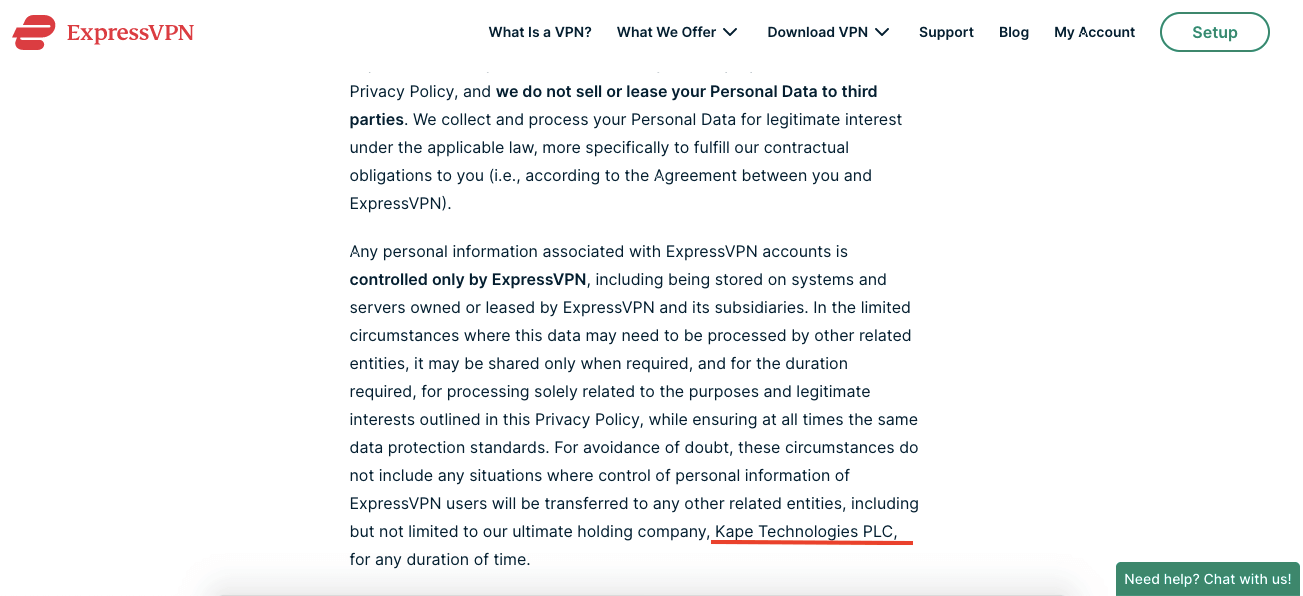
By the same token, if the VPN is engaged in any shady practices — especially using its parent company as a cover — those practices will come out in the privacy policy. For example, in my Hotspot Shield review, I discovered that the privacy policy refuses to outright state it does not collect logs on its users, merely promising not to keep logs that “can be traced.”
Look for Clues
Some VPNs do everything they can to hide their real owners under layers of equivocation. In these cases, fall back on good old-fashioned detective work. A case study: Turbo VPN, a service I don’t recommend for several reasons, claims its parent company is a Singapore-based startup called Innovative Connecting.
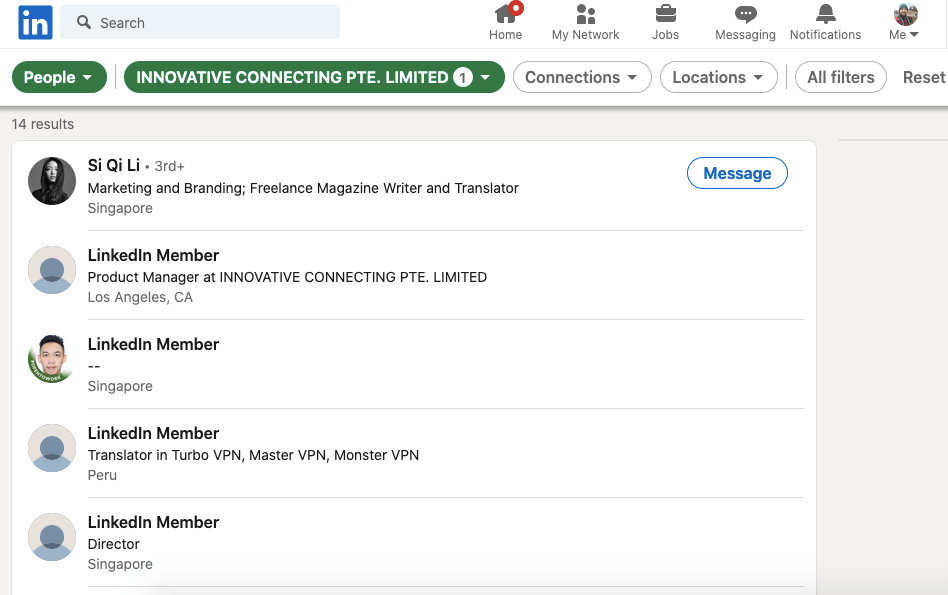
Innovative Connecting owns a number of VPN services, including VPN Proxy Master (via another company called Lemon Clove). However, there’s no staff list on Turbo VPN’s website, and Innovative Connecting’s LinkedIn lists only 14 employees, most of whom are anonymous. The Innovative Connecting website links back to Turbo VPN. How are we supposed to know where the buck actually stops?
First, I dug up Innovative’s address in Singapore. It’s currently at 8 Marina View, but until 2020, it was headquartered at 38 Beach Road, #29-11, South Beach Tower. During the four or so years before the move, it shared that address with a company called LinkSure. A business by that name, known for a WiFi sharing app, is run by a Chinese national.
Now, I can’t be certain it’s the same company. The evidence is circumstantial. There’s two things, though. First, the risk of the Chinese government stealing your browsing history is high enough to merit some caution. Second, if a VPN makes you dig through address records just to guess at who owns it, it’s not worth your money.
Top VPNs: Who Owns Them?
Of course, Turbo VPN is hardly in the upper echelon of VPNs. You’re probably here about the big names: your ExpressVPNs, your Surfsharks. Well, “good” news — the top tier of VPN services is just as vulnerable to consolidation as the bottom of the VPN barrel. In fact, more than half of the top 15 VPNs are owned by three companies.
ExpressVPN, CyberGhost VPN and Private Internet Access are all owned by Kape Technologies, a holding company based in the U.K. There’ll be more on Kape Technologis in the next section. I’ll also talk more about NordSec, owner of NordVPN, Surfshark and Atlas VPN.
Pakistan-based Gaditek owns PureVPN and may own Ivacy, though that’s no longer quite so clear. TunnelBear is owned by security giant McAfee, which also has its own VPN.
hide.me is owned by Malaysia-based eVenture. This initially set off the same alarms Turbo VPN did, but hide.me is more transparent about staff — it’s seemingly still run by its original founder. VyprVPN is now owned by Certida, which also owns two Usenet service providers, but no other VPNs.
Of my most-recommended VPNs, a few either have no parent company or are still fully owned by their founders. Proton VPN, Mullvad, Windscribe and PrivadoVPN fall into this category.
Big Companies That Own Multiple VPNs
Now that you know who owns the biggest VPNs, let’s look at the problem from the other side and profile some of the main culprits behind the consolidation of the VPN industry.
Kape Technologies
Kape is probably the best-known VPN consolidator, thanks to its ownership of three of the best-known providers: ExpressVPN, CyberGhost and Private Internet Access (along with the lesser-known ZenMate VPN).
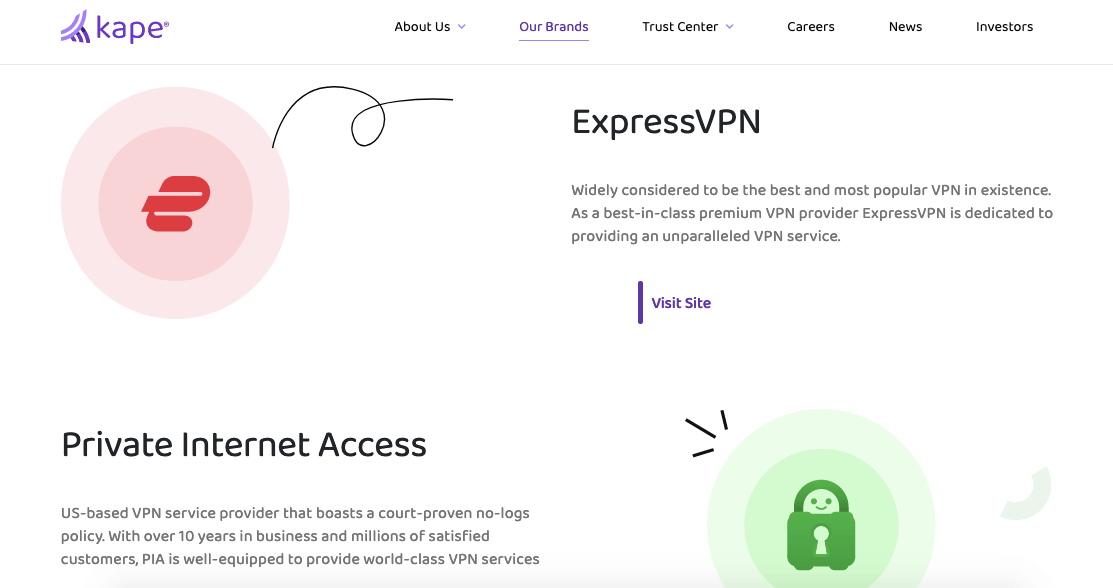
Until 2018, Kape was known as Crossrider. Its main product at that time was a development environment that made browser extensions compatible with multiple browsers. While not inherently malicious, the Crossrider platform could be used to deploy invasive ads and malware — essentially writing them as evil browser extensions.
Crossrider seems to have sanctioned its use as adware, but there’s no evidence it approved of the malware. Either way, the misuse sullied its reputation, so it rebranded to Kape before pivoting to its new business model of buying VPNs.
Perhaps the shadiest thing about Kape is that it also owns two VPN review sites, WizCase and VPNMentor. By… sheer coincidence… Kape VPNs always seem to do well in the rankings on those sites. It’s an object lesson in the dangers of media consolidation: You can’t trust a parent company not to meddle in journalism.
Nord Security
Nord Security, also called NordSec, is the parent company of NordVPN and its family of products (including NordPass, NordLayer, NordLocker and NordWL). In October 2021, NordSec purchased Atlas VPN. As of February 2022, it’s part of the same corporate entity as Surfshark, though Surfshark continues to operate as an independent brand (see my Surfshark review for details).
Given that NordSec began acquiring other VPNs just a month after Kape bought ExpressVPN in September 2021, it looks like the company believed it had to consolidate or die. I’m less suspicious of NordSec than I am of Kape since it at least started as a VPN connection company — not to mention it hasn’t bought any review sites.
That said, it’s important to note that even when consolidation offers immediate benefits (such as Surfshark hypothetically being able to use NordVPN’s server network), it’s an anti-consumer trend in the long run, making prices less competitive.
Pango Group/Aura
Here’s a confusing one. Pango Group is a security consortium that owns Hotspot Shield, Betternet, VPN 360, Touch VPN, UltraVPN and OVPN. Pango has its own parent company, Aura, which also makes digital security products. However, all of Aura’s VPN products seem to be consolidated under one company — Pango.
I’m no fan of Hotspot Shield (see my above complaints about the shadiness of its privacy and security credentials) and none of Pango’s other VPNs offer much to write home about. The worst is Betternet, a VPN known to spread trackers and malware. Be wary of any VPN in the same ownership family as that one.
Gaditek
Pakistani firm Gaditek claims to be Pakistan’s largest purveyor of tech products, and owns 12 other brands — including content marketing firm WebAffinity and something called Disrupt.com, which claims to be a startup accelerator but reads more like an AI trained solely on Edward Norton’s lines from Glass Onion.
As for VPNs, the picture is murkier. Gaditek openly owns PureVPN. Until recently, it listed Ivacy VPN among its brands as well. However, it seems to have scrubbed all traces of Ivacy from its website — possibly due to reports that PureVPN and Ivacy were using the same infrastructure.
Ivacy now lists its owner as “PMG Pte. Ltd,” which has a familiar address as its headquarters: 38 Beach Road #29-11, Singapore. This doesn’t necessarily mean it’s secretly owned by Innovative Connecting, but it does mean the VPN developers could be sharing third-party services.
A bigger, redder flag: Several people wrote VPN review content while on Gaditek’s payroll. Much of the digital trail has since been deleted, but profiles show Gaditek employees working for sites with names like BestVPNService.com and BestVPN.co. A writer named Aazim Akhtar lists VPNRanks and BestVPN.co among his projects while employed at Gaditek.
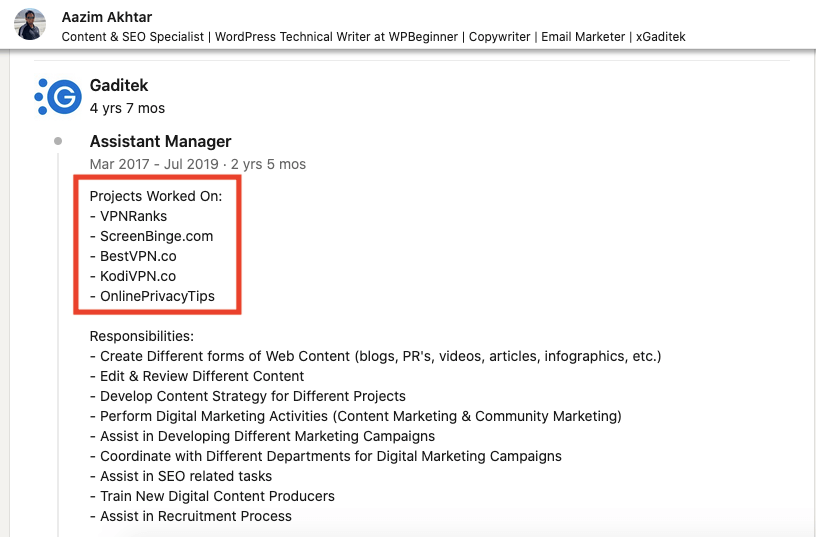
“So what?” you might say. “A content writer wrote content, big deal. Lots of VPN review sites make money from VPNs.” You’re not wrong, but again, there’s a big difference between making affiliate commissions and outright owning the products you recommend. The former is a level playing field, while the latter leads to bias and bad recommendations.
Ziff Davis/J2 Global
Ziff Davis, formerly known as J2 Global, owns a long menu of VPNs but only a few worth noting: IPVanish (which recently absorbed SaferVPN), Encrypt.me (merged with Buffered VPN), StrongVPN and “certain assets” of the business VPN Perimeter 81.
It also owns PCMag, a site that publishes VPN reviews. To its credit, PCMag seems unafraid to give mediocre reviews to Ziff Davis properties — it gave 3 out of 5 to Encrypt.me and the same rating to StrongVPN. But that’s no reason to stop being vigilant; we need to hold conglomerates accountable, not trust them to play by the rules.
One more note on Ziff Davis: One of its products, FastVPN, was previously called Namecheap VPN. According to an investigation by Restore Privacy, Namecheap VPN used IPVanish servers in its network. This is just one proven instance of a VPN owner repackaging its services under multiple names, a tactic theoretically available to all of them.
This repackaging can mislead users by concealing relevant information. Suppose hackers take down several of PiedPiperVPN’s servers by exploiting developer negligence. If the parent company shuts down that service, then a month later starts shilling EyeCrudVPN with the same servers and management team, wouldn’t you want to know about it?
Additional VPN Ownerships You Should Be Aware Of
TunnelBear is owned by McAfee, a company with its own share of controversies, from financial malfeasance to the conspiracy theories of its late founder. However, it doesn’t appear to be manipulating the VPN provider market through its acquisitions. McAfee does have its own VPN, but it’s mainly a supplement to its antivirus, not really in competition with TunnelBear.
Hide.me is owned by eVenture, which I investigated earlier in this article. I didn’t find any links to Chinese companies, but being located in Malaysia is its own problem, since Malaysia is one of the most surveillance-prone governments in the world. However, its data privacy laws do protect personal information in commercial transactions.
Another holding company to note is ActMobile Networks, which distributes several similar versions of the mobile-only Dash VPN.
Does China Own My VPN?
Name any VPN service, and I can show you at least three instances of people wondering whether it’s secretly owned by China. It may seem like a conspiracy theory, but there are at least a few reasons to take this fear seriously. First, Chinese companies do own plenty of cheap web apps and often take pains to conceal their involvement.
There’s the matter of Innovative Connecting from earlier in this article, but some connections have more evidence behind them. FlyVPN, one of the most popular VPNs in Taiwan with over 30,000 monthly installs, is owned by Uditech, a company based in Hong Kong and funded by several Chinese investors.
We also can’t forget that other Chinese-owned apps have already proven to contain backdoors that let teams within China view user data. The most notorious is TikTok. Its popularity in the U.S. spurred two senators to demand that the FBI investigate the intelligence risk from Chinese telecom firms harvesting data on foreign users.
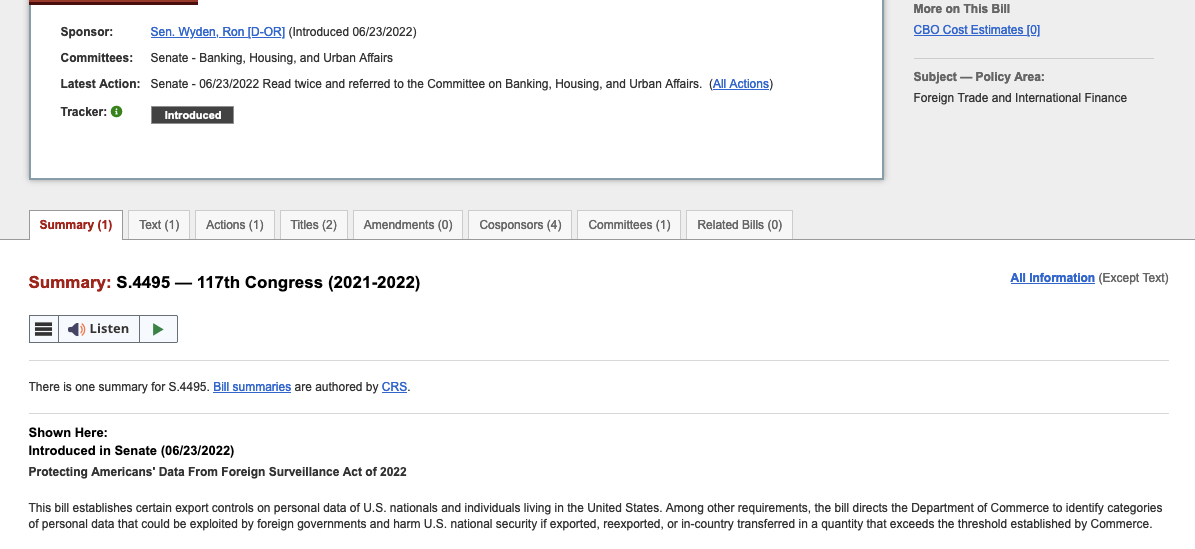
And yes, it matters if China secretly owns one of your favorite apps. As you’ll read in my best China VPN roundup, the one-party state has no regard for privacy, and Chairman Xi’s Communist Party frequently commandeers businesses for its own ends.
Putting it all together: If your VPN is owned by a Chinese citizen or company, even indirectly, there’s a chance the Chinese government can spy on your internet history. Now, it doesn’t prove they are spying, just that they can, but it’s still a smart precaution to verify that your VPN isn’t owned by China.
The good news is that you’re probably using a safe service already. Almost all Chinese-owned VPNs seem to be shovelware that I’d never suggest using, even if the security risk was nil. Fears that ExpressVPN, NordVPN, Surfshark and their ilk are secretly Chinese plants are unsourced and have no basis in reality.
Top Independently Owned VPNs
I mentioned earlier that several high-quality VPNs remain independently owned or owned by parent companies that don’t own any other products. In my opinion, a VPN’s parent company doesn’t necessarily reflect the quality of the service.
However, if ownership matters to you, you’ve still got plenty of strong choices in the VPN market. I’ve listed five of the best below.
Proton VPN
Proton VPN, one of my favorite VPNs in any category, comes from the same company as Proton Mail and other end-to-end encrypted services. Enjoying Switzerland’s strict data retention laws, it’s supported by subscriptions, crowdfunding and government grants, making it perhaps the least compromised service out there. My full Proton VPN review has the details.
Mullvad
Mullvad is extremely committed to privacy, to the point that it lets you pay for your subscription in cash. Its simple pricing structure means every month of use costs $5.48, no matter what. For that, you get consistent speeds with absolutely no paper trail. See my Mullvad review to learn what else is on offer.
Windscribe
Windscribe is both affordable and highly customizable. If you can stand to use less than 15GB of data per month, you can access servers in 10 countries for free. You can add another location for just $1 per month. Speeds are a bit less reliable than Proton and Mullvad, though, and the interface can be hostile to beginners. Learn all about it in my Windscribe review.
PrivadoVPN
PrivadoVPN’s parent company does not own any other products. The VPN service, the sole offering of Privado Networks, is a great choice for a free VPN if Windscribe and Proton don’t work for you. Enjoy 10GB of data per month and 15 connection cities in 12 countries. It’s also great at unblocking streaming sites, but speeds can struggle.
VyprVPN
VyprVPN is run by Certida, a company with only three products: VyprVPN and two Usenet clients. It has an impeccable security record and its Chameleon protocol is a great choice for China, though download speeds can slow on far-off servers. See my VyprVPN review to learn more.
Conclusion: VPN Ownership
VPN market consolidation is a long-term threat to the public’s security options, so it’s good to support independent services if you can. That said, if an individual VPN works for you, you don’t need to stop using it just because it’s owned by Kape or Ziff Davis. So far, there’s no evidence that the owners of any of the top 15 or 20 VPNs have done anything untoward.
As long as you avoid services with links to China, which you can usually spot due to their refusal to identify their employees or locations, the owner of your VPN service matters more to your personal beliefs about security than to your actual safety online. Until we find out that Kape Technologies is injecting ads onto private devices, ExpressVPN is still safe to use (read my full ExpressVPN review).
Have you ever stopped using a VPN service because of its parent company? I’d love to hear the story in the comments, along with anything else I might have missed. Thanks for reading!
FAQ
Who Owns ExpressVPN?
ExpressVPN is owned by Kape Technologies, a British company that also owns CyberGhost, Private Internet Access and ZenMate.Who Owns NordVPN?
NordVPN’s parent company is Nord Security (NordSec), which also owns Surfshark and Atlas VPN.Can VPN Companies See My Data?
Yes, a VPN provider might be able to see your internet activity via its servers. That’s why it’s important to read privacy policies in detail and make sure there are no issues with the VPN’s parent company.Can I Trust My VPN Provider?
The biggest sign that you can’t trust your VPN provider is if you can’t seem to find out who runs it or where it’s located. Beware also of VPN services that don’t seem to have been reviewed or investigated in the media.

Leave a Reply